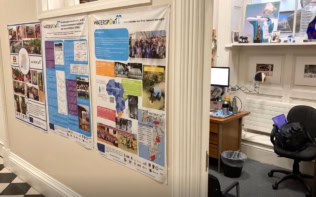By Michael Banks
Library users in the UK now have access to hundreds of thousands of journal articles following a new initiative called Access to Research, which was rolled out yesterday.
The two-year pilot programme will allow public-library users in the UK to freely access 8000 journals from 17 publishers including IOP Publishing, which publishes Physics World, as well as Elsevier, Nature Publishing Group and Wiley.
Last year, about 250 libraries from 10 local authorities, the majority of which are in southern England, were involved in testing the programme, with the initiative now being launched nationwide.
Access to Research is in response to one of the main recommendations of the Finch report, which aimed to reach a consensus on an open-access policy among universities, libraries, researchers, learned societies and publishers in the UK. The recommendation stated that major academic publishers should grant public libraries a licence to provide free access to academic articles.
To browse a journal, users must go into a library that has signed up for the initiative and then use a registered computer in the library to access a specially built Web-based search platform.
The big question is, apart from scientists who in most cases already have access to journal content via university libraries, who else will want to access the material? Well, it could be independent researchers, small businesses or students who are at home between term times and still have to write dissertations and do literature searches. It could also be people searching for the latest medical research. But it might be someone who just wants to keep up-to-date with the latest development in, say, 3D thermal cloaks.
What will be interesting, however, is whether the statistics for how many people have used this new resource will be made public following the two-year trial period.
You can find out more about the Finch report and how open-access publishing is now being enshrined in formal government policy in this feature.



